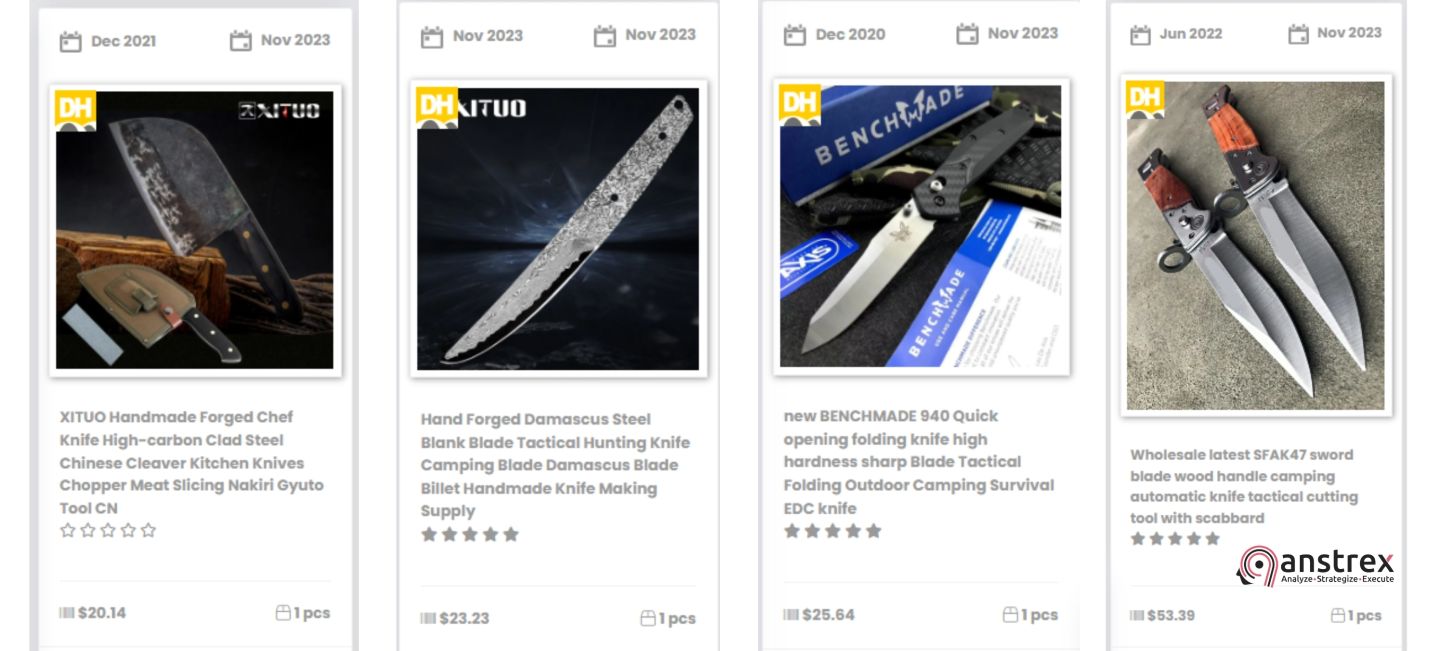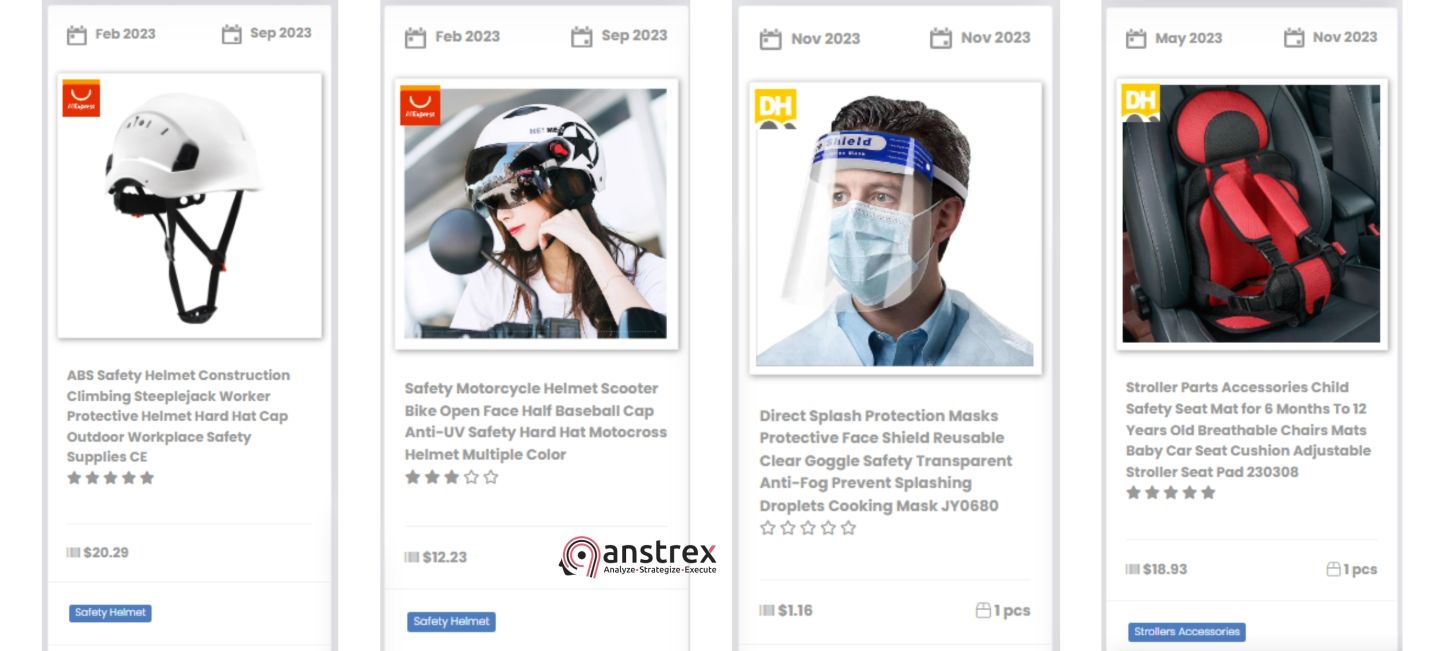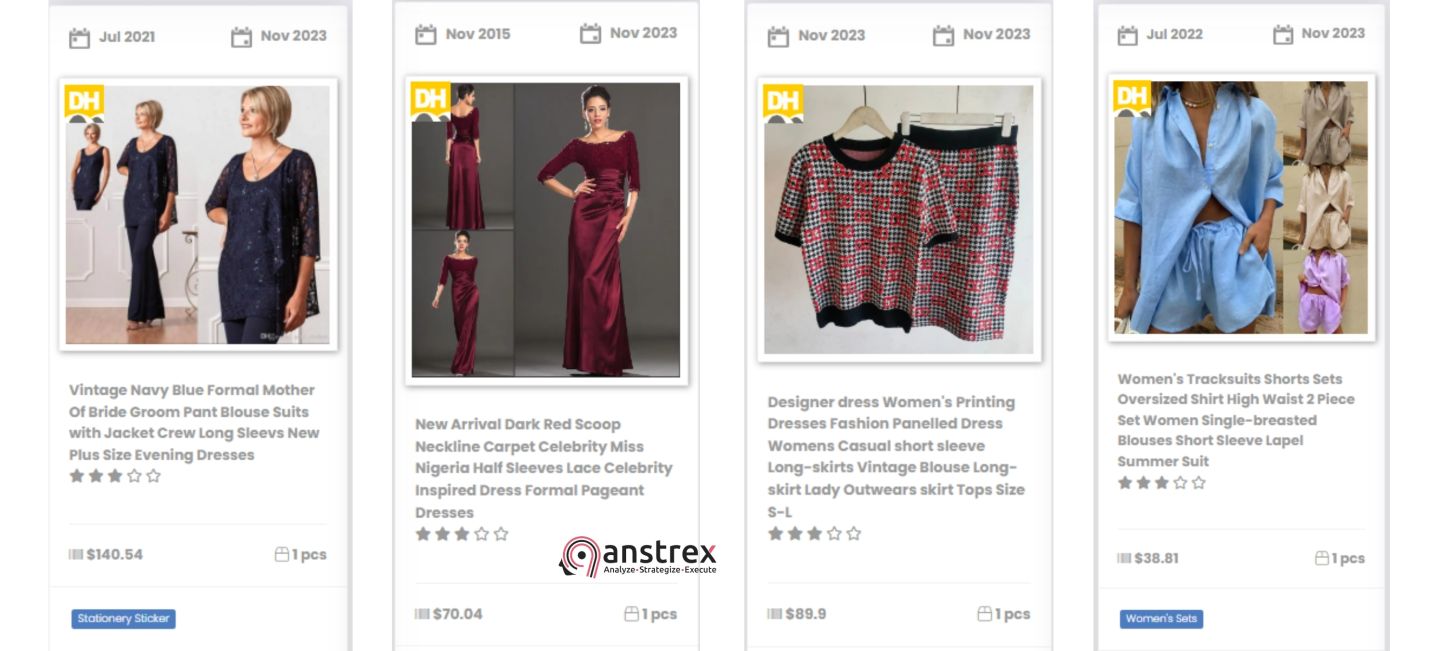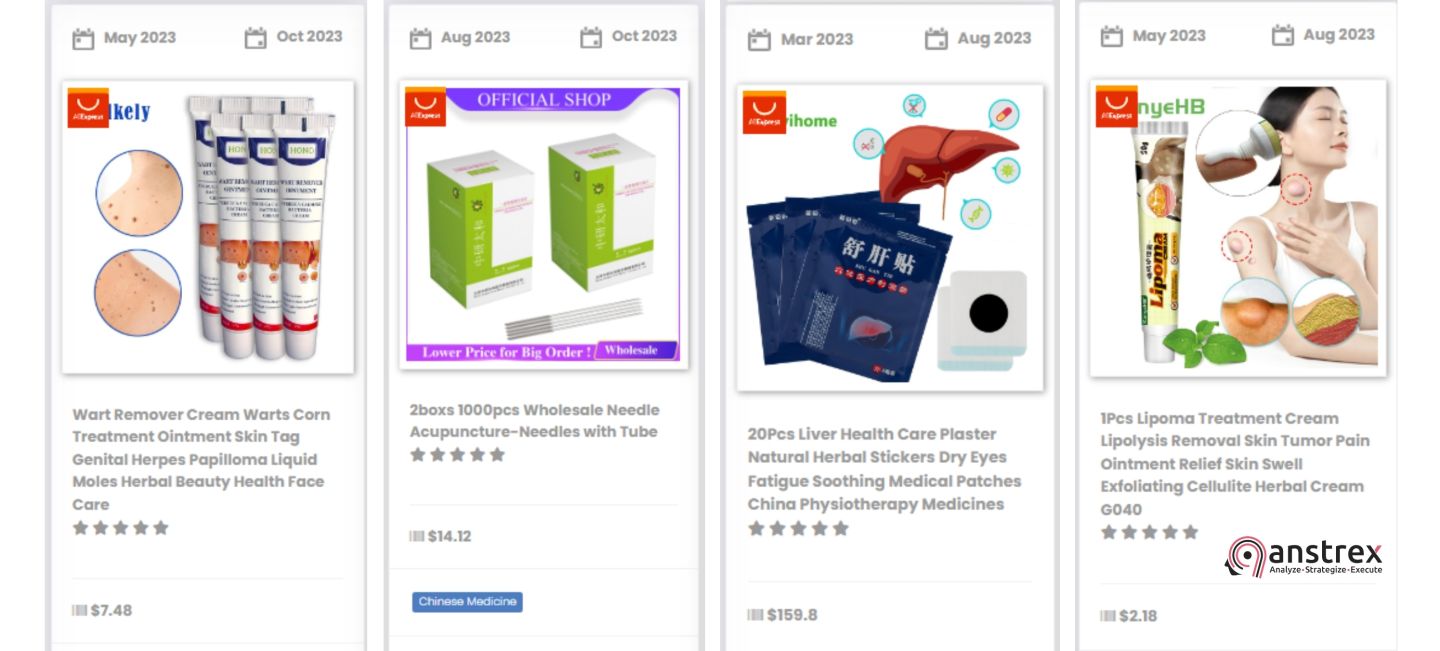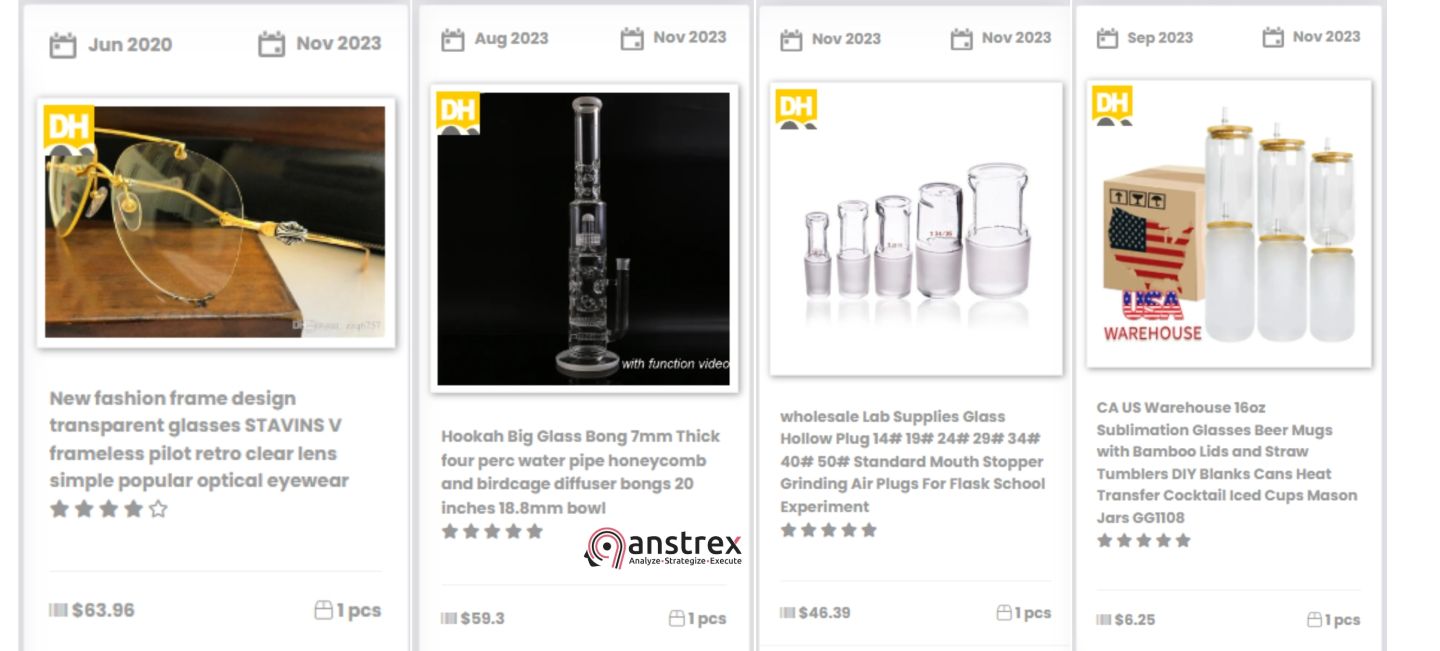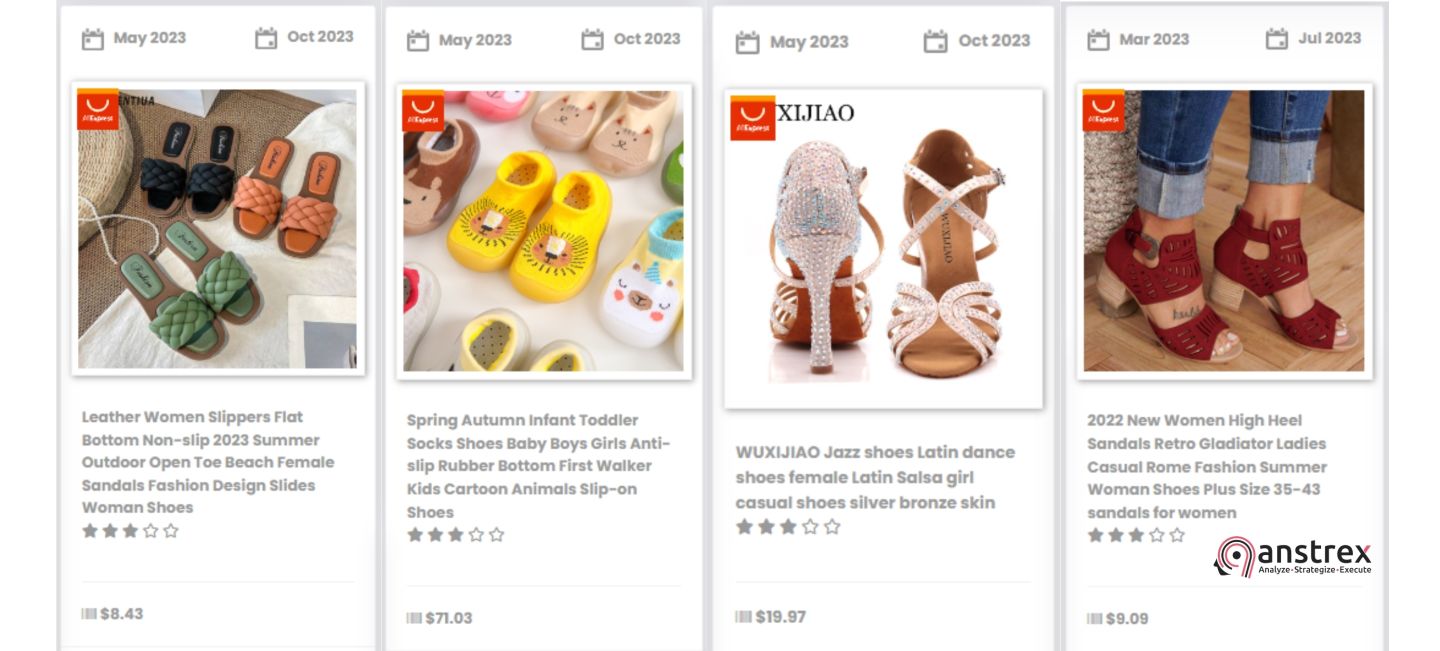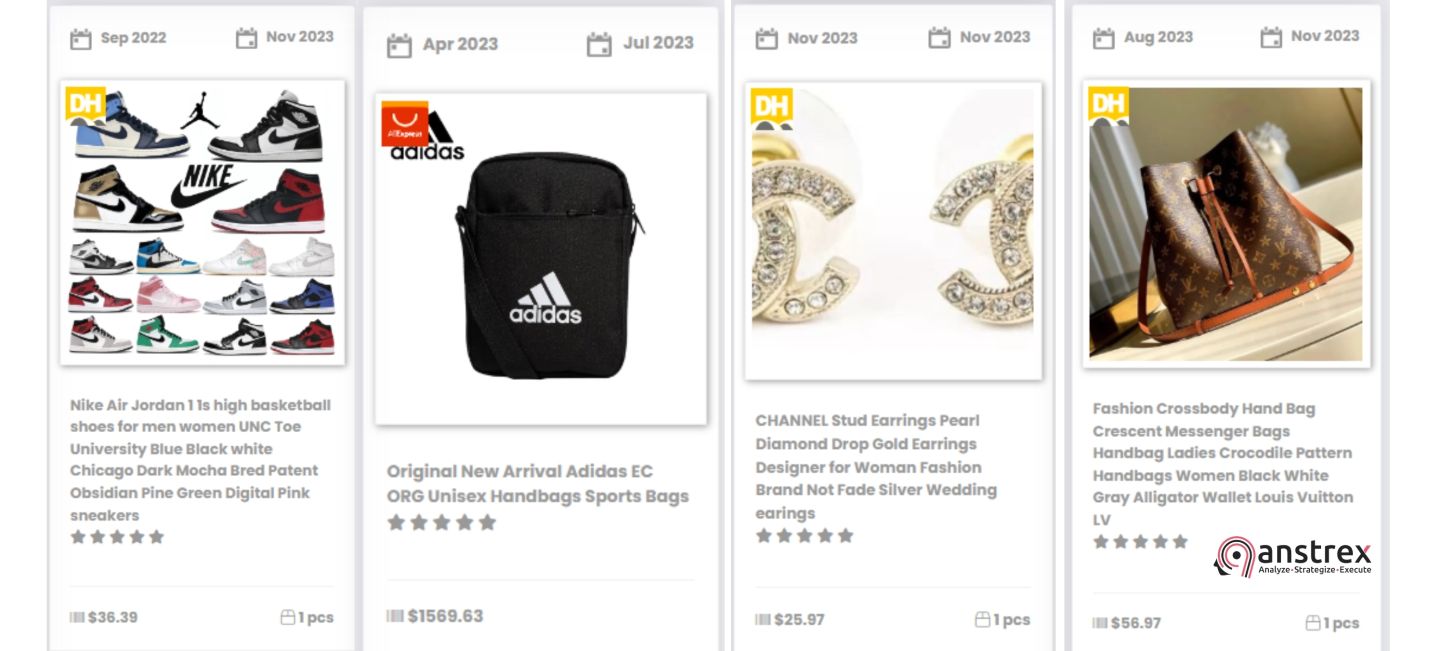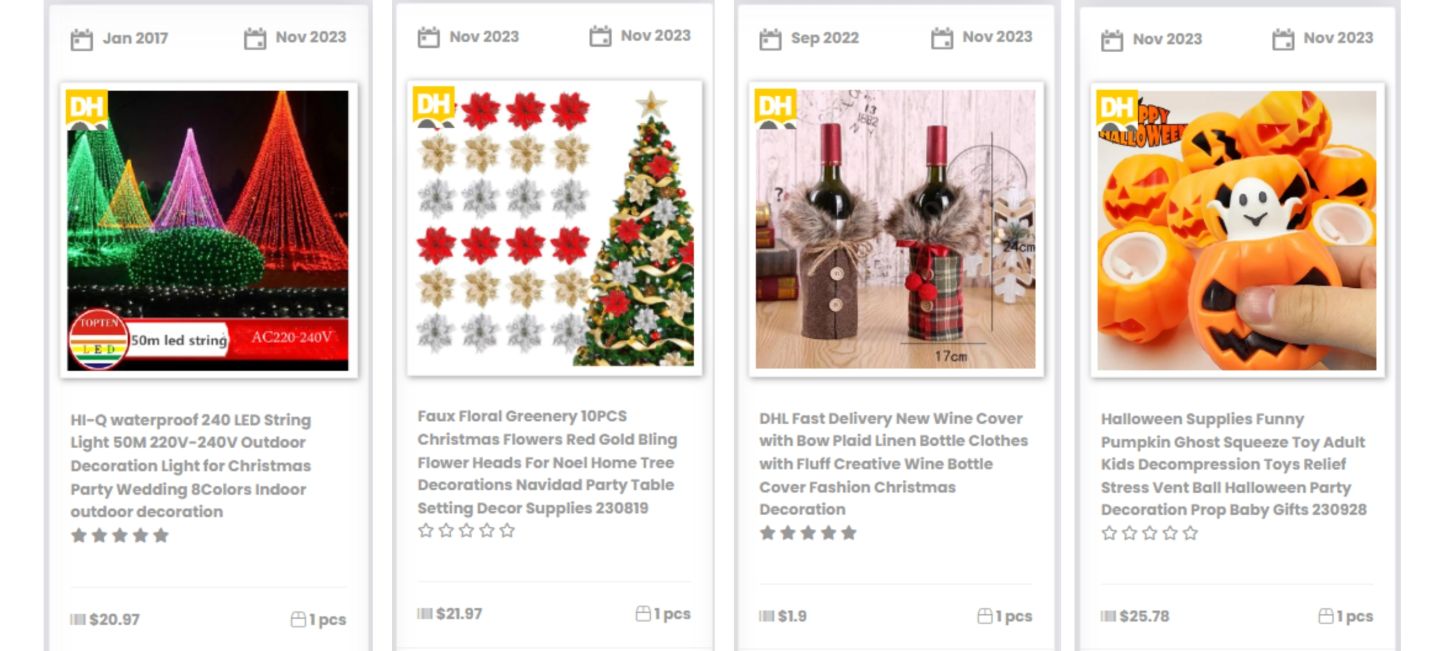
Our dropship tool integrates with Shopify and Woo-Commerce stores and automates your entire dropshipping business!
Get StartedDropshipping, a popular retail fulfillment method, has gained immense popularity in recent years. Instead of holding inventory, sellers transfer orders to third-party suppliers.
It may seem effortless, but it's not as easy as it appears. Many people dive into dropshipping without researching their niche, leading to frustration and disappointment.
To succeed in dropshipping, choosing the right niche is crucial. Not all niches are profitable; some can result in decreased sales and wasted resources. Therefore, thorough research is necessary before selecting a niche.
In this blog post, we provide insights on nine dropshipping niches to avoid if you want long-term success. These niches are known for their low profit margins and high competition. By avoiding these niches, you can prevent headaches and minimize unnecessary stress.
Let's jump right in!
While numerous niches exist in online marketing, avoiding weapons as a dropshipping niche is crucial. The sale and distribution of weapons involve significant business challenges that can negatively impact your business.
You should avoid this niche because:
Weapons are highly regulated products in many countries, with strict laws governing their sale and distribution. As a dropshipper, you may face legal challenges and difficulties obtaining the necessary permits or licenses to sell these items.
Who's got extra funds for that?
E-commerce platforms such as Shopify, Amazon, and eBay strictly prohibit the sale of weapons or weapon-related products. These policies can restrict your options for establishing an online store and reaching potential customers.
Top that off with places that allow to advertise these things — and we know how advertising is the bread and butter of dropship stores. If you can't advertise in Google, TikTok, Facebook and all other Meta properties, you can say goodbye to your online store.
Shipping weapons across borders can be challenging due to strict customs regulations and import/export restrictions. It may result in delayed shipments, seizures, or even fines.
Using Anstrex's Dropshipping Product Spy Tool, we find these examples of weapons being sold by dropshipping suppliers. As you can see, the sale count is pretty low (if there's anything lower than 1, aside from zero!)
Selling weapons carries significant liability risks. If a customer misuses a product purchased from your store, you may potentially be held responsible for any resulting injuries or damages. This can result in legal disputes and expensive lawsuits.
Weapons are a controversial and sensitive topic. Associating your brand with weapons may alienate potential customers with strong opinions against them, limiting your market reach and affecting your brand's reputation.
As a business owner, you may want to consider the ethical implications of selling weapons. Evaluating whether you are comfortable with the potential consequences of using your products for harm is important.
When selecting a niche for your dropshipping business, it's crucial to find one that is both profitable and sustainable. Safety equipment may be a tempting niche to promote because of the recent pandemic, but don't get lured in.
While safety equipment such as ear plugs, gloves, goggles, hard hats, helmets, face shields, face masks, and waistcoats may seem attractive due to its evergreen nature and constant demand, you should avoid this niche for several reasons.
Here are the key factors to consider:
Safety equipment protects users from potential harm or injury in various situations. Consequently, if a product fails to perform as expected, it can lead to severe consequences and legal repercussions for the seller.
As a dropshipper, you may not have direct control over the quality of the products, increasing the chances of facing lawsuits, financial losses, and damage to your reputation.
Safety equipment is often subject to strict regulations and compliance requirements, which vary across countries and regions.
For dropshipping businesses that source products from multiple suppliers, complying with regulations can be challenging and consume a lot of time due to its complexity. Non-compliance can result in hefty fines, product recalls, or a complete business shutdown.
Customers purchasing safety equipment expect products that meet or exceed industry standards. If a product doesn't meet their expectations, they are more likely to return it, leading to increased return rates and logistical challenges.
Managing returns can be particularly difficult for dropshippers, as you may need to coordinate with multiple suppliers and adhere to their specific return policies.
Safety equipment customers often require detailed information about product specifications, usage instructions, and maintenance guidelines. Providing this level of support can be resource-intensive and challenging for a dropshipping business, as you may not possess the technical knowledge or expertise required to address every inquiry effectively.
Everyone wears clothes, so why not go for clothes? Don't — for one main reason — oversaturation.
In today's highly competitive fashion world, the clothing market has become oversaturated with various styles, designs, and trends.
Among all the different categories within this market, women's clothing stands out as the most saturated sub-niche, making it challenging for new businesses to establish themselves and succeed.
For entrepreneurs looking to venture into dropshipping clothes, it might be worthwhile to consider other niches that still have room for growth and opportunity. Some viable options include men's clothing, baby clothing, or pet clothing.
These markets have not reached the saturation point like women's clothing and offer a better chance for new dropshippers to make their mark in the industry.
If you are still determined to sell women's clothing, you must differentiate yourself from the competition by focusing on a specific sub-niche.
Catering to a more specific target market allows you to offer unique products that will appeal to that particular group of customers.
For instance, why not go for clothing targeting nursing mothers? This segment of the market is highly targeted and their needs are very different from usual fashion styles.
The downside to this is because it is highly niched, you may find it hard to secure a supplier. If you ever find one, you'll also be dependent on that supplier's stock and collection, which is a big no-no.
While health supplements might seem like the golden ticket to success, let's pump the brakes and look closer. There are a couple of pretty good reasons why this niche might not be the best choice for your entrepreneurial journey.
First up, the health supplement industry is a bit of a minefield when it comes to regulations. We're dealing with stuff people put in their bodies, so it's no wonder that governments keep a watchful eye on what's being sold and how it's promoted.
You want smooth sailing, not a legal storm, right? Earning your customer's trust can be quite an uphill battle with so many sketchy products out there. And let's face it, trust is the lifeblood of any successful business.
Now, let's talk about competition. The health supplement market is more crowded than a concert's mosh pit – no joke! With countless big names already hogging the spotlight, standing out from the pack will be a herculean task.
So why not explore a niche that's a bit less jam-packed and has room for you to shine?
It's difficult to consider fragile items as a single niche since they can belong to different categories. Nevertheless, they are included on the list of products to avoid when dropshipping for a good reason.
Dealing with fragile items can be a real headache. Online marketers are now steering away from products such as plates, glasses, jars, and vases, among others, because they are too delicate and expensive to ship.
Picture this: your customer receives their package, only to find a shattered mess inside. Ouch! Not only does this lead to unhappy customers and potential returns, but it also means you'll be spending more time (and money) on shipping replacements and handling refunds.
With other sturdier products, you can avoid these hassles and keep your focus on growing your business. Plus, who wants to tiptoe around delicate items all day? Not us!
Secondly, shipping costs for fragile items can be a real bummer. Carriers often charge extra for delicate goods, and you'll need to invest in quality packaging materials to ensure they arrive intact.
This can eat into your profit margins, decrease your ROI, and make it harder to compete with other sellers. Instead, opt for a niche with products that are easier to ship and less likely to break. Your wallet will thank you, and your customers will appreciate the speedy, hassle-free deliveries.
If you are considering shoes as your dropshipping niche, there are many factors that you should consider. While it can be a good option if you can find your niche, it still comes with challenges. It is important to acknowledge that several challenges come with it.
One of the biggest challenges is sizing issues. Customers may find it difficult to choose the perfect fit, leading to high return rates and customer dissatisfaction. Furthermore, this can be particularly frustrating for online shoppers, who can't try the shoes on before making a purchase.
Or even if they know their size, you must first verify whether the shoes you are purchasing are sizes the same way. Not to speak ill of some suppliers, but those, particularly in China, have smaller shoe sizing, even with the same alphanumeric or numeric sizes.
You would have to inform your customer of this so that they are not surprised when they are sent a pair with the size indicated to be bigger than their initial choice.
Shoes, in particular, pose unique quality concerns due to their susceptibility to wear and tear. The issue with dropshipping shoes from unknown suppliers is that you may end up with subpar-quality products that could damage both your reputation and customer trust.
People rely on sturdy shoes to stay comfortable and safe, and providing anything less undercuts their trust in your brand.
Remember, the shoe industry is a highly competitive market, and customers are looking for products that exceed their expectations. Therefore, it is in your best interest to avoid shoes as your dropshipping niche and focus on a target audience that is looking for products that can perform to the highest quality standards.
Steer clear of copyrighted products in your dropshipping niche. You might think that these are easier to promote since name brands already made their mark in the market, but trust us, it's just not worth it. Why?
Well, for starters, the legal issues are a nightmare. Selling these products without permission is illegal, and you could face lawsuits, fines, or criminal charges. Plus, your business's reputation could take a serious hit.
Don't forget about platform restrictions. E-commerce giants like Shopify, Amazon, and eBay have strict policies against selling copyrighted products without authorization. Break the rules, and your store could be suspended or banned for good.
Besides, finding trustworthy suppliers for these products is no picnic either – most legit manufacturers and distributors won't work with unauthorized sellers. That leaves you stuck dealing with sketchy suppliers who might sell you counterfeit or low-quality items.
But let's say you manage to dodge all those obstacles. You're still left with a competitive, saturated market that's tough to stand out in. Plus, you're missing out on valuable branding opportunities.
When you sell copyrighted products, you promote someone else's brand instead of building your own. That means creating a unique identity for your store and attracting a loyal customer base is harder.
So, what's the takeaway? Dropshipping copyrighted products is a risky move that comes with many challenges, from legal problems to platform restrictions and limited growth potential.
Do yourself a favor and choose a niche that lets you build a strong brand and offer unique, high-quality products that your customers will love.
The name itself also gives a clue to its biggest downside — it's seasonal.
Seasonal products are typically associated with specific holidays or seasons. This constraint results in a narrow time frame to generate revenue, potentially affecting cash flow and profitability.
As dropshippers don't hold stock, they are entirely dependent on the manufacturer for the availability of products. This dependency becomes problematic when an item sees a sudden surge in demand due to a seasonal trend, and the manufacturer cannot keep up with the production.
Closely related to this issue is the risk of a manufacturer discontinuing a product unexpectedly. With no control over the supply chain, dropshippers are left helpless in such situations.
In both situations, dropshippers can do little more than cancel orders and issue refunds, causing significant customer dissatisfaction and negatively impacting the store’s credibility.
Furthermore, the fluctuating demand associated with seasonal products can make it difficult for dropshippers to predict sales and plan marketing strategies effectively.
A product that is selling like hotcakes today can quickly fall out of favor as the season changes, leaving dropshippers with a sudden dip in sales and scrambling to find the next trending product.
While seasonal products can provide a temporary boost in sales, the inconsistency in supply and demand, coupled with the lack of control over the supply chain, makes them a risky choice for dropshippers.
It can be far more beneficial to choose a niche with steady, year-round demand, allowing for more predictable sales and a stable business model.
If you're considering dropshipping but haven't started yet, here's our biggest advice: learn from the experiences of others and make informed decisions to create a thriving dropshipping business. After all, in this line of business, mistakes can be costly.
To ensure long-term success in e-commerce, it's wise to dodge these problematic dropshipping niches or find creative solutions to their challenges. Doing so will lay a strong foundation for your business and set you up for a thriving online venture.
If you're not confident whether the niche you plan on promoting will become profitable or not, use our Dropshipping Tool to determine its sale count, popularity, cost, possible revenue, actual ads to use, and so on. Click here to learn more about this awesome tool.
Tags
Receive top converting landing pages in your inbox every week from us.
Featured
TerraLeads is a direct nutra-advertiser and CPA network that has been operating in the market for over 8 years.
Elena Morales
7 minApr 11, 2024
None
If your campaigns are already generating revenue but you want to reach more people or gain more sales, then it's time to scale your TikTok Ads! Here's how to do that.
Jairene Cruz
7 minFeb 15, 2024
Featured
To succeed in dropshipping, choosing the right niche is crucial. Not all niches are profitable, but we'll discuss here here those that you must really avoid. Keep reading!
Jairene Cruz
7 minNov 23, 2023
